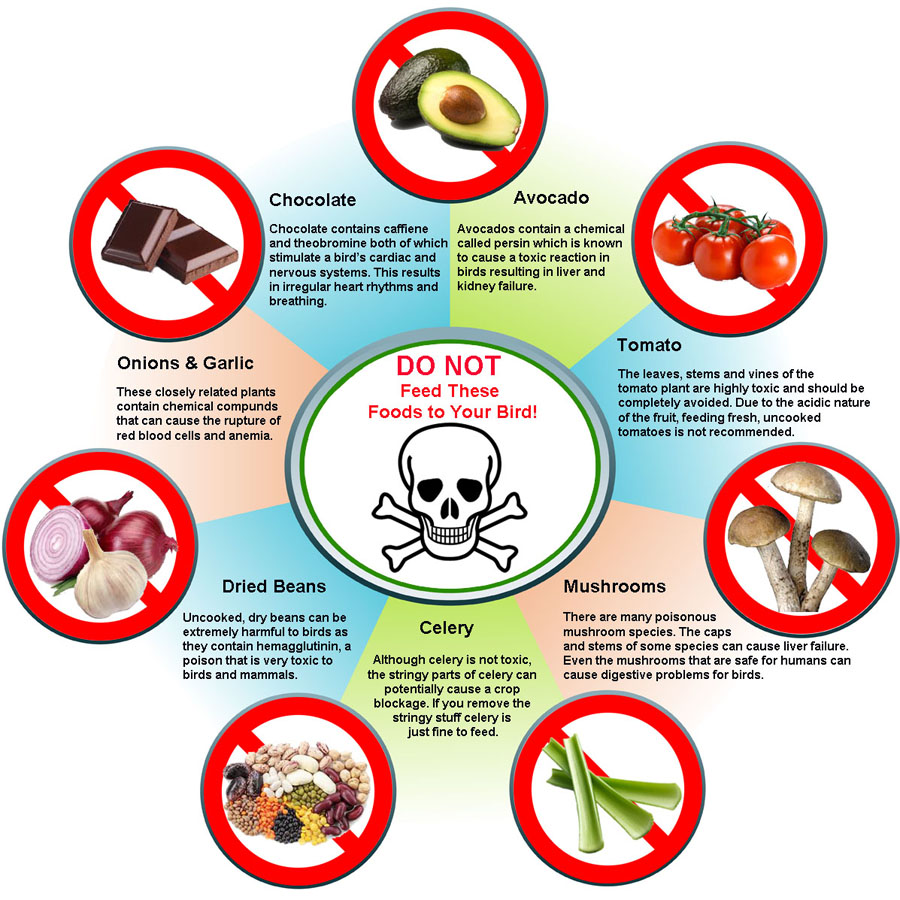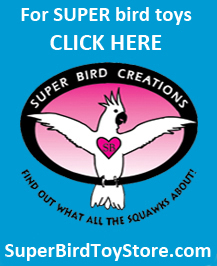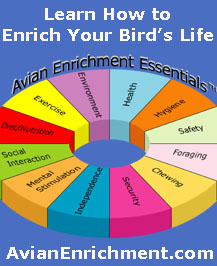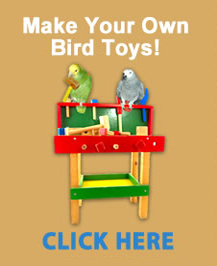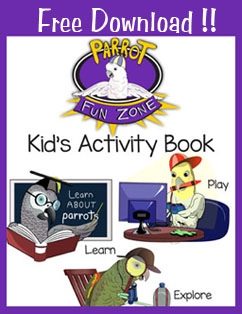Feed a Healthy Diet
|
Parrots in the wild eat raw foods such as fruits and vegetable matter, nuts, grains, seeds, sprouts, berries, flowers, pollen, insects and larvae. Many species also supplement their diets by eating clay and salt licks. There are lots of commercial bird foods to choose from including bird seed mixes, pelleted diets and ready to cook diets. Although commercial diets have significantly improved, no one commercial diet comes close to simulating how our birds eat in nature and none of the commercial diets provide for 100% of the nutritional needs of our birds. Because of all of the options it is sometimes confusing about what is the best type of food to feed your bird. Variety is important! Since commercial diets can't reliably replicate a bird's natural diet, it appears that offering a broad range of nutrition and a wide variety of healthy food choices is the key to maintaining a healthy bird. These options include:
Giving your bird a varied selection of foods will not only keep them healthy and beautiful but, it will also make their lives much more interesting. Imagine how dull our existence would be if we had to eat the same meal over and over again for the rest of our days! Your birds will relish the opportunity to make choices and try new foods and they will delight in exploring different tastes and textures. Cooking for your bird can be fun and a good way to introduce lots of healthy foods into his diet. Check out some of our healthy treat recipes on our website. NOTE: Not all bird species have the same nutritional requirements so be sure to research what would be best for your bird. For example, lorikeets and lories are nectarivore and their primary diet in the wild is nectar and pollen. Click the graphic below to learn about foods that you should never feed to your bird:
|
Related Articles
 Exercise
Exercise
 Foraging
Foraging







































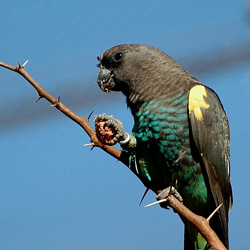



























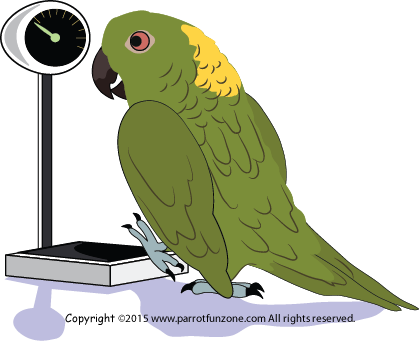 Just like we need to eat a balanced diet to ensure we are healthy and our bodies function right, the same is true for our birds. Feeding your pet bird a good, healthy diet is essential to its long-term health.
Just like we need to eat a balanced diet to ensure we are healthy and our bodies function right, the same is true for our birds. Feeding your pet bird a good, healthy diet is essential to its long-term health.